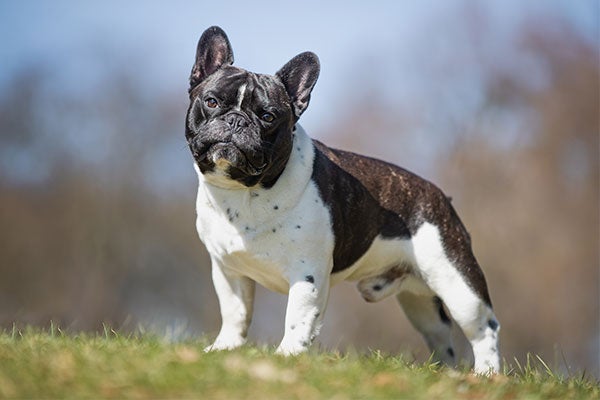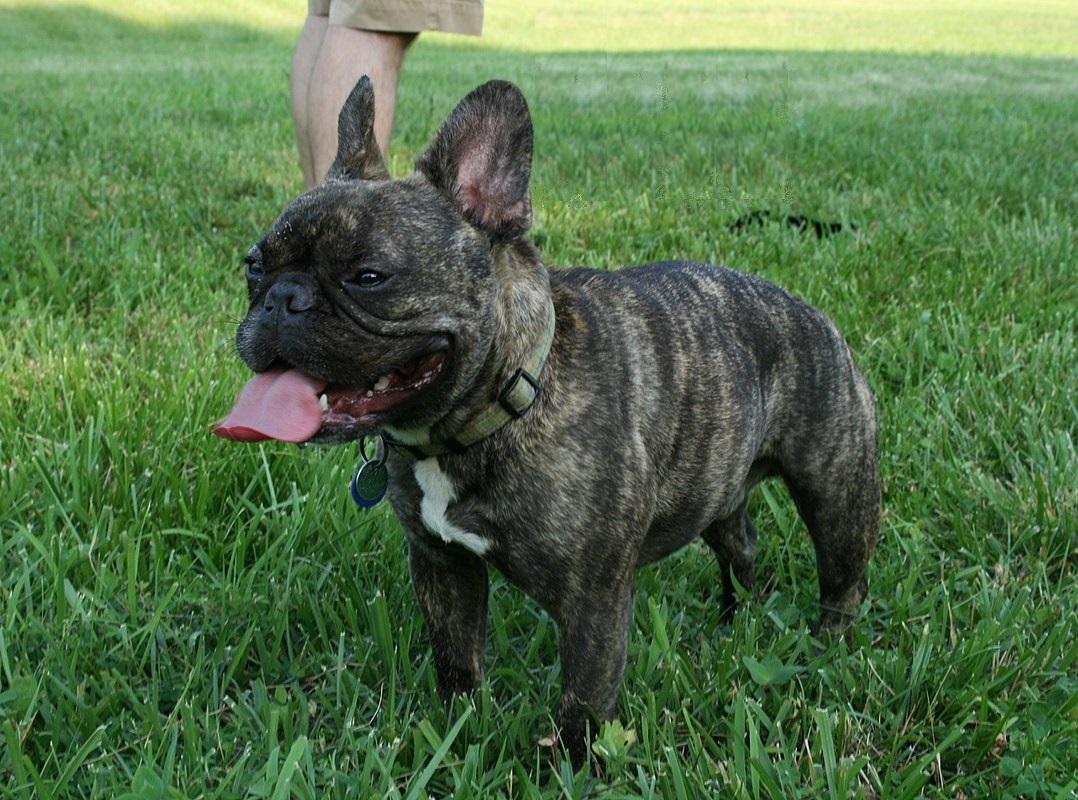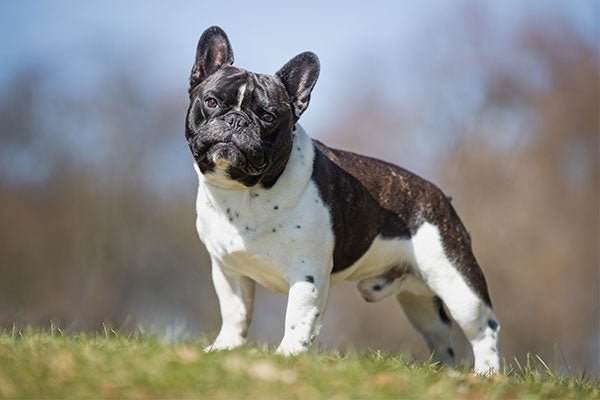When it comes to breeding French Bulldogs, there is an interesting fact that sets them apart from other breeds. Unlike most dogs, French Bulldogs cannot mate naturally due to their unique body structure. This means that when it comes to breeding, artificial insemination is the preferred method. This surprising fact highlights the care and attention required to ensure the successful reproduction of French Bulldogs.
French Bulldogs are a beloved breed with a rich history. Originating in France, they were initially bred as companion dogs for lace workers. These adorable, affectionate, and muscular dogs have since gained popularity worldwide. However, their breeding process is not without challenges. French Bulldogs often require assistance during mating and birthing due to their large heads and narrow hips. This presents breeders with the task of finding the right mating pair, ensuring a safe and healthy breeding process for these beloved dogs.
To breed French Bulldogs, follow these steps:
- Select a healthy male and female French Bulldog for breeding
- Consult with a veterinarian to ensure both dogs are in good reproductive health
- Determine the optimal time for breeding, which is usually around the female’s ovulation period
- Allow the dogs to mate naturally or consider artificial insemination
- Monitor the female for signs of pregnancy and consult with a veterinarian throughout the process

The Process of Breeding French Bulldogs
French Bulldogs, also known as Frenchies, are a popular breed of dog known for their friendly and affectionate nature. If you’re considering breeding French Bulldogs, it’s important to understand the process and the responsibilities that come with it. Breeding French Bulldogs involves careful planning, proper health testing, and responsible breeding practices. In this article, we will explore the process of how French Bulldogs breed, from selecting suitable mates to caring for the pregnant dog and raising the puppies.
Choosing the Right Mates
The first step in breeding French Bulldogs is to carefully choose the right mates. It’s important to consider the health, temperament, and conformation of both the male and female dogs. The goal is to improve the breed and produce healthy, well-rounded puppies. Working with a reputable breeder or a professional veterinarian can help ensure that you select the best mates for breeding.
When selecting the mate, it’s important to consider factors such as:
- Health history and genetic testing
- Temperament and behavior
- Physical conformation and breed standards
By choosing mates with desirable traits and health backgrounds, you increase the chances of producing healthy and well-adjusted puppies.
Health Testing
Before breeding French Bulldogs, it’s crucial to perform health tests on both the male and female dogs to ensure they are free from any hereditary diseases or health issues. Some common health tests for French Bulldogs include:
1. Hip and elbow dysplasia screening: This helps identify any abnormalities in the hips and elbows of the dogs, which can lead to mobility issues.
2. Patellar luxation screening: This test checks for any misalignment or instability in the kneecaps, which can cause lameness and discomfort.
3. Eye examinations: Dogs should undergo regular eye exams to check for any hereditary eye diseases, such as cataracts or progressive retinal atrophy.
4. Genetic testing: Genetic testing can help identify and eliminate the presence of genetic disorders, such as brachycephalic syndrome and certain skin conditions.
5. Reproductive health check: Both male and female French Bulldogs should be examined by a veterinarian to ensure they are in good reproductive health and able to breed.
By conducting these health tests, you can reduce the risk of passing on hereditary diseases to the puppies and improve the overall health of the breed.
The Breeding Process
Once you have chosen the right mates and completed the necessary health testing, it’s time to begin the breeding process. Breeding French Bulldogs should be done under the guidance and supervision of a veterinarian to ensure the safety and well-being of the dogs.
Here are the key steps involved in the breeding process:
1. Timing the breeding
French Bulldogs are typically bred during the female dog’s heat cycle, which usually occurs every six to eight months. It’s important to determine the optimal time for breeding to increase the chances of a successful pregnancy. A veterinarian can help track the female dog’s estrous cycle and determine the most fertile period.
2. Natural breeding or artificial insemination
French Bulldogs may require assistance in the breeding process due to their unique physical characteristics, such as their small size and brachycephalic (flat-faced) structure. In some cases, natural breeding may not be possible, and artificial insemination may be recommended by a veterinarian.
3. Monitoring the pregnancy
After successful breeding, it’s important to monitor the female dog’s pregnancy. Regular veterinary check-ups, ultrasounds, and proper nutrition are essential for the health of both the mother and the developing puppies. The gestation period for French Bulldogs is approximately 63 days.
Caring for the Pregnant Dog and Raising the Puppies
During the pregnancy and after birth, it’s crucial to provide proper care and support to both the pregnant dog and the puppies. Here are some important considerations:
1. Nutrition and exercise
The pregnant dog should be provided with a well-balanced, nutritionally rich diet to support her own health and the development of the puppies. Regular exercise is also important, but it should be adjusted according to the dog’s energy levels and veterinarian’s recommendations.
2. Preparing for whelping
Before the expected due date, it’s essential to prepare a clean and comfortable whelping area for the pregnant dog to give birth. This area should be warm, safe, and easily accessible for both the mother and the breeder.
3. Assisting with the delivery
During the delivery process, the breeder should be prepared to assist the mother if needed. This may involve helping to break the amniotic sacs, clearing the airways of the newborn puppies, and providing support and comfort to the mother.
4. Raising the puppies
Once the puppies are born, they require round-the-clock care and attention. This includes ensuring they are nursing properly, monitoring their weight gain, providing appropriate warmth, and gradually introducing solid food as they grow. Regular veterinary check-ups are also important to monitor their health and administer any necessary vaccinations.
The Importance of Responsible Breeding
It’s important to emphasize the significance of responsible breeding practices when it comes to French Bulldogs or any other breed. Responsible breeding involves prioritizing the health and well-being of the dogs and striving to improve the breed. It means adhering to ethical breeding standards, considering the long-term welfare of the dogs, and placing the well-being of the breed above financial gain.
French Bulldogs have become quite popular in recent years, leading to an increase in unethical breeding practices, such as puppy mills and backyard breeding. These practices prioritize profit over the health and welfare of the dogs, resulting in an increased risk of genetic disorders and health problems in the puppies.
By responsibly breeding French Bulldogs, you can contribute to the preservation and improvement of the breed, ensuring the production of healthy and happy puppies. This involves not only selecting the right mates and conducting necessary health tests but also providing lifelong support to the puppies and their new owners.
Conclusion
Breeding French Bulldogs is a complex process that requires careful planning, health testing, and responsible breeding practices. By selecting the right mates, conducting health tests, and providing proper care throughout the breeding process, you can contribute to the well-being and improvement of the breed. Responsible breeding practices are essential for the long-term health and welfare of French Bulldogs and any other breed.
Key Takeaways – How Do French Bulldogs Breed?
- French Bulldogs are a small breed of dog that require careful breeding to ensure their health and well-being.
- Breeding French Bulldogs involves selecting two compatible dogs based on their health, temperament, and conformation.
- The breeding process typically involves natural mating, although artificial insemination with the help of a veterinarian is also an option.
- Female French Bulldogs should only be bred when they are in good health and free from any genetic or hereditary issues.
- It is important to work with a responsible breeder who prioritizes the health and welfare of the dogs and follows ethical breeding practices.
Frequently Asked Questions
Here are some common questions related to how French Bulldogs breed:
1. What is the breeding process for French Bulldogs?
The breeding process for French Bulldogs involves selecting a suitable mate, preparing the female for breeding, and allowing the dogs to mate naturally. Once the mating has occurred, the female will undergo a gestation period of approximately 63 days before giving birth to a litter of puppies. It is important to ensure that both dogs are in good health and have undergone appropriate health screenings before breeding.
During the breeding process, it is essential to provide a safe and comfortable environment for the dogs. It is recommended to consult with a veterinarian or a professional breeder for guidance and assistance throughout the breeding process to ensure the health and well-being of both the female and the puppies.
2. How can I determine the best time for breeding my French Bulldog?
Determining the best time for breeding your French Bulldog involves closely monitoring the female’s reproductive cycle. The female dog will go through different stages during her cycle, including proestrus, estrus, and diestrus. It is crucial to carefully observe the female’s behavior and physical signs of readiness for mating, such as a swollen vulva and vaginal discharge.
Consulting with a veterinarian or a professional breeder is highly recommended to help determine the optimal time for breeding. They can perform a progesterone test to assess the level of hormones in the female’s body and provide guidance on the most suitable time for mating to increase the chances of successful breeding.
3. Are there any health considerations when breeding French Bulldogs?
Yes, there are several health considerations to keep in mind when breeding French Bulldogs. French Bulldogs are brachycephalic breeds, meaning they have a flat face and a shortened muzzle. This structure can lead to respiratory issues and difficulties during the birthing process.
It is crucial to only breed French Bulldogs that are free from known hereditary health conditions, such as hip dysplasia and brachycephalic airway syndrome. Health screenings, including X-rays and genetic testing, should be performed on both the male and female dogs before breeding to ensure the best possible chances of producing healthy offspring. Regular veterinary check-ups throughout the pregnancy and after birth are also important to monitor the health of the mother and puppies.
4. What should I consider when choosing a mate for my French Bulldog?
When choosing a mate for your French Bulldog, it is essential to consider several factors. One of the primary considerations is the overall health and genetic background of the potential mate. The mate should be free from hereditary health conditions that may be common in the breed.
It is also important to assess the mate’s temperament and personality traits to ensure compatibility with your French Bulldog. Additionally, considering the mate’s physical characteristics, such as size and conformation, can help produce well-balanced and healthy puppies. Consultation with a professional breeder or veterinarian can provide valuable guidance in selecting a suitable mate for your French Bulldog.
5. What should I expect during the breeding process and after the birth of the puppies?
During the breeding process, you can expect the dogs to exhibit natural mating behaviors, including mounting and locking. After successful mating, the female will undergo a pregnancy period of approximately 63 days. It is important to provide the mother with proper nutrition, regular exercise, and a calm and stress-free environment during her pregnancy.
After the birth of the puppies, it is crucial to monitor the health and well-being of both the mother and the puppies. The mother will nurse and care for the puppies, and it is important to provide her with the necessary support, including a comfortable and safe whelping area and a balanced diet. Regular veterinary check-ups for the puppies will help ensure their health and proper growth and development.

In order to breed French Bulldogs, a male and female dog are selected for mating.
The female is brought into heat, and the male is allowed to mount and mate with her.
If successful, the female will become pregnant and carry the puppies for approximately 63 days.
After birth, the puppies are cared for by their mother until they are old enough to be weaned.
French Bulldogs have a relatively low fertility rate and may require artificial insemination or other reproductive techniques to successfully breed.
It’s essential to consult with a veterinarian or a professional breeder for guidance and assistance when breeding French Bulldogs.
